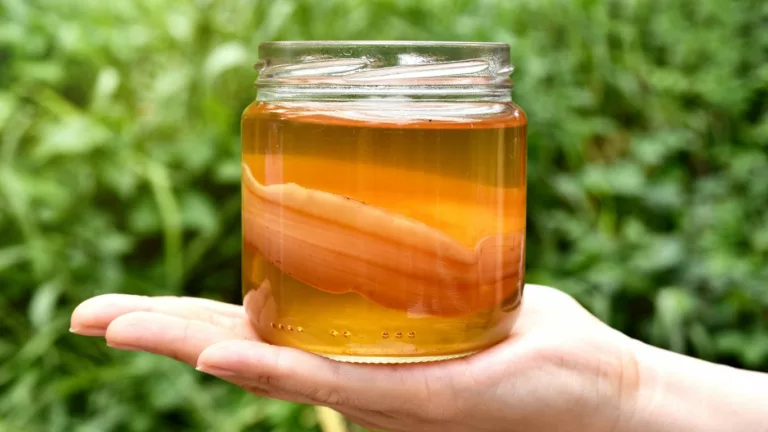Best Humidifier for Asthma – A Comprehensive Guide
Wondering if a humidifier can really help with asthma? We’ve got all the details on how the best humidifiers can make a difference in your breathing health. Let’s dive into the top picks and how to choose the right one for asthma relief!
Dealing with asthma can be a real challenge, especially when it comes to managing the triggers that can make breathing harder. If you’ve been looking for ways to improve air quality and reduce asthma symptoms in your home, you’ve probably heard that a humidifier could help. The right humidifier can make a big difference in reducing irritation in your airways, keeping your skin hydrated, and making it easier to breathe. But how do you know which one is the best for asthma?
In this guide, we’ll break down everything you need to know about choosing the best humidifier for asthma, from the types of humidifiers to look for, to the key features that make one perfect for respiratory health.

Why Humidifiers Help with Asthma
Before we dive into the specifics, let’s talk about why humidifiers are beneficial for asthma in the first place. Asthma can be triggered by a variety of factors, including dry air, allergens, and irritants in the environment. Dry air can cause your airways to become irritated, leading to coughing, wheezing, and shortness of breath. Humidifiers help add moisture to the air, which can:
- Moisturize the airways: This helps keep your respiratory system hydrated and can reduce the irritation caused by dry air.
- Reduce allergens: Proper humidity levels can help reduce the number of allergens like dust and pollen in the air.
- Ease breathing: Moist air makes it easier for your lungs to work and can reduce asthma flare-ups.

Types of Humidifiers to Consider for Asthma
When you’re shopping for the best humidifier for asthma, it’s important to know which type works best for your needs. There are several different types of humidifiers available, each with its pros and cons.
1. Cool Mist Humidifiers
Cool mist humidifiers are often recommended for asthma sufferers because they release cool moisture into the air. This helps prevent the air from becoming too dry, which can aggravate asthma symptoms. Cool mist models are also great for preventing the buildup of bacteria and mold, which can be a problem with other types of humidifiers.
- Pros: Helps maintain moisture in the air without raising the temperature.
Can help with dry skin and nasal passages.
Good for asthma and allergies. - Cons: Requires regular cleaning to avoid bacteria buildup.
Can make the room feel cooler, which might not be ideal in colder climates.
2. Warm Mist Humidifiers
Warm mist humidifiers heat water to create steam, which is then released into the air. These are also effective for asthma because they add moisture, just like cool mist humidifiers, but they can have the added benefit of easing congestion, especially during colds or respiratory infections.
- Pros: Can help clear up mucus and nasal congestion.
Ideal for colder weather since they add warmth to the room.
Helps with respiratory discomfort. - Cons: Can be noisy due to the heating element.
Might get too hot to use safely in some households (especially with children).
3. Ultrasonic Humidifiers
Ultrasonic humidifiers use ultrasonic waves to create a fine mist, which is then released into the air. They are quiet and efficient, making them a popular choice for people with asthma. These models are available in both cool mist and warm mist variations.
- Pros: Super quiet operation.
Energy-efficient and low maintenance.
Available in both cool and warm mist options. - Cons: Some models may have issues with mineral buildup (although using distilled water can help).

Key Features to Look for in the Best Humidifier for Asthma
When selecting a humidifier for asthma, look for these features to make sure you’re getting the most effective model for your needs:
1. Filter Quality
For asthma relief, it’s important to choose a humidifier that has a good filter to trap dust, allergens, and bacteria. Some models come with HEPA filters or antimicrobial treatments to help keep the air clean.
2. Size of the Unit
Make sure the humidifier is appropriate for the size of your room. A small unit for a bedroom may not be enough for a larger living area. Always check the coverage area (usually measured in square feet) to ensure it’s effective for your space.
3. Ease of Cleaning
Humidifiers need to be cleaned regularly to avoid mold and bacteria buildup, which can make asthma symptoms worse. Look for models that are easy to disassemble and clean, and choose one with a tank that’s easy to fill.
4. Quiet Operation
If you’re using the humidifier in a bedroom or somewhere you spend a lot of time, make sure it’s quiet. Noise can be distracting, especially at night when you’re trying to sleep.
5. Humidistat
Some humidifiers come with a built-in humidistat, which helps maintain a consistent humidity level in the room. This is especially helpful for asthma sufferers, as humidity that’s too high or too low can both trigger symptoms.
Top Picks for the Best Humidifier for Asthma
Now that you know the types and features to look for, here are a few top-rated humidifiers that are especially good for asthma:
1. Levoit Cool Mist Humidifier
The Levoit cool mist humidifier is a top choice for asthma sufferers due to its quiet operation and effective moisture distribution. It also has a built-in humidistat, so you can maintain the ideal humidity level.
2. Vicks Warm Mist Humidifier
For those who prefer warm mist, the Vicks Warm Mist Humidifier is a great option. It’s especially helpful if you’re dealing with congestion, as the warm mist can help loosen mucus and make breathing easier.
3. Honeywell HCM-350 Germ-Free Cool Mist Humidifier
This ultrasonic humidifier comes with a filter that helps reduce germs, bacteria, and allergens. It’s a great choice for asthma sufferers who want to purify the air while maintaining the right humidity levels.

Conclusion
The best humidifier for asthma can make a big difference in your daily comfort and overall health. Whether you choose a cool mist, warm mist, ultrasonic, or evaporative model, the right humidifier can help reduce symptoms by maintaining optimal humidity levels and filtering out allergens. Remember to clean your humidifier regularly to keep it working properly, and choose a model that fits your room size and noise preferences.
Appendices
FAQs
- Can a humidifier help with asthma? Yes, using a humidifier can help maintain optimal humidity levels, which can reduce asthma symptoms and improve breathing.
- What is the best type of humidifier for asthma? Cool mist humidifiers are generally recommended for asthma, as they help reduce irritation and maintain comfortable air moisture.
- How often should I clean my humidifier? It’s important to clean your humidifier at least once a week to prevent mold and bacteria buildup.
- Can I use essential oils in my humidifier? Some humidifiers allow the use of essential oils, but be sure to check the manufacturer’s guidelines, as not all models are designed to handle oils.
- Are humidifiers good for asthma during winter? Yes, humidifiers can be especially beneficial in winter when indoor air tends to be drier, which can trigger asthma symptoms.
References
- American Lung Association. (2023). How Humidity Affects Asthma. Read Article
- National Asthma and Allergy Foundation. (2024). Best Practices for Managing Asthma at Home. Read Article
- Environmental Protection Agency. (2023). Indoor Air Quality and Asthma Management. Read Article
Disclaimer
The information in this article is provided for educational purposes only and should not be considered medical advice. Always consult a healthcare professional or asthma specialist for personalized recommendations and treatments.














